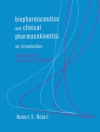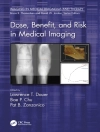The Food and Drug Administration (FDA) regulates the U.S. sale of drugs and biological products, basing approval or licensure on evidence of the safety and effectiveness for a product’s intended uses. Without that approval or licensure, a manufacturer may not distribute the product except for use in the clinical trials that will provide evidence to determine that product’s safety and effectiveness. Under certain circumstances, however, FDA may permit the sponsor to provide an unapproved or unlicensed product to patients outside that standard regulatory framework. Two such mechanisms are expanded access to investigational drugs, commonly referred to as compassionate use, and emergency use authorization. This book examines FDA policies on compassionate use and emergency use authorizations. It also describes how drugs are approved and come to market, including FDA’s role in that process, and discusses FDA and industry roles once drugs are on the pharmacy shelves. Finally, this book describes why research on a drug’s pharmacokinetics, safety, and effectiveness in children might be necessary; presents why the marketplace has not provided sufficient incentives to manufacturers of drugs approved for adult use to study their effects in children, and provides an overall understanding of FDA’s authority to ensure that drugs prescribed to children are safe and effective.
Tonya Burke
Compassionate Use and Emergency Use Authorization for Unapproved Drugs [PDF ebook]
FDA Policies and Background
Compassionate Use and Emergency Use Authorization for Unapproved Drugs [PDF ebook]
FDA Policies and Background
购买此电子书可免费获赠一本!
格式 PDF ● 网页 113 ● ISBN 9781634841405 ● 编辑 Tonya Burke ● 出版者 Nova Science Publishers ● 发布时间 2015 ● 下载 3 时 ● 货币 EUR ● ID 7226346 ● 复制保护 Adobe DRM
需要具备DRM功能的电子书阅读器












